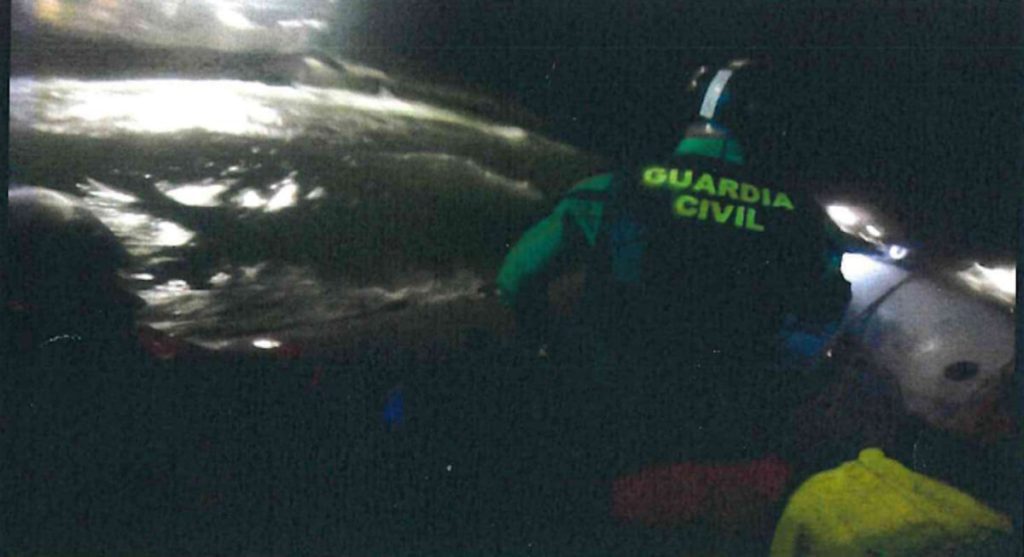The testimonies of the four Civil Guards who survived the attack on the narco-boat in the port of Barbate (Cadiz) last February that resulted in the deaths of agents Miguel Ángel González and David Pérez did not provide relevant information about the alleged authorship of the double crime. However, they did highlight the lack of resources with which they faced the criminals that day. The guards indicated that the boat they were on was not prepared for the mission in any way, and there was a significant difference in size between the narco-boats and the patrol boat they were on. The statements also revealed that the agents were not adequately equipped for the situation they faced, with one guard mentioning that they only had their pistols and were not even allowed to carry long weapons.
The judge overseeing the case prevented the attorneys from delving into the material resources available to the agents that day, as she considered the questions were not relevant to clarifying the investigation into the murder of the agents. The two major professional associations among the agents have filed complaints against senior command members of the Civil Guard for sending the six agents to confront the narco-boats with what they deemed to be clearly insufficient resources. The court in Cadiz has initiated investigations into these complaints. The testimony of the survivors, presented three months after the incident, highlighted the physical and psychological scars they still bear from that day.
The agent who was part of the Rapid Action Group (GAR) could not provide detailed descriptions of the boats involved in the attack, as they were all similar in size and appearance. The focus then shifted towards the conditions and resources the agents had when they attempted to intercept the six narco-boats. Despite receiving unclear instructions and limited protection equipment, the agents were tasked with stopping the occupants of the narco-boats, which were suspected of drug trafficking. The agents admitted that their small boat was not suitable for this type of operation, and one of them even remarked that the narco-boats were prepared to cut through the water and would have posed a threat regardless of the boat they were in.
Another agent, who was equipped with a Go-Pro camera on his helmet that recorded key images during the incident, reiterated the inadequacy of the resources and preparation for the operation. The orders received from higher-ranking officers indicated a lack of understanding of the risks involved, as one officer mentioned that the narco-boats could potentially run over the agents due to the small size of their boat. The survivors emphasized that they were not adequately trained or equipped for amphibious operations, especially in a situation involving heavily armed criminals on narco-boats. The statements provided by the agents shed light on the challenges they faced and the lack of support from their superiors in ensuring their safety and effectiveness in such risky operations.
The overall picture painted by the testimonies of the survivors is one of incompetence and negligence on the part of the higher-ranking officers who deployed the agents to confront the narco-boats with insufficient resources. The lack of adequate training, equipment, and strategic planning resulted in the tragic deaths of two agents and left lasting physical and psychological scars on the survivors. The legal proceedings initiated by professional associations against the high-ranking officers reflect a broader concern within the Civil Guard regarding the safety and preparedness of the agents in high-risk operations. The testimonies provided valuable insights into the challenges faced by law enforcement in combating organized crime and the need for comprehensive reforms to prevent similar tragedies in the future.














